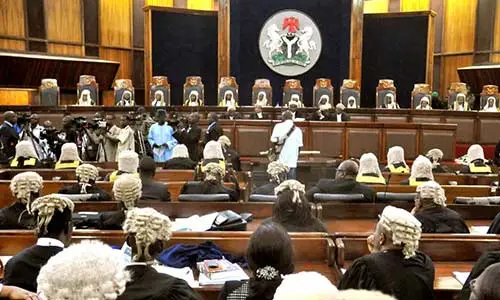COURTROOM NEWS 22/01/2024
Federal High Court Dismisses Ubani’s Lawsuit Against Roadblocks

When a lawsuit filed by Dr. Monday Ubani, a former Chairman of the Nigerian Bar Association Section on Public Interest and Development Law (NBA-SPIDEL), landed on the bench of the Federal High Court in Lagos, it was meant to challenge the numerous roadblocks set up by security agencies on the Lagos-Southeast routes.
Ubani, a legal luminary and a stalwart for public interest, argued that these roadblocks infringed upon his fundamental right to free movement as guaranteed by Section 41 of the 1999 Constitution and other relevant laws. However, on the day of the ruling, the court dismissed the lawsuit, stating that while the roadblocks did affect travel time and freedom of movement, they did not violate the fundamental rights.
Ubani’s main contention was that the excessive roadblocks resulted in traffic delays, nuisance, and hardship for travelers. He took on the mantle to challenge the Attorney-General of the Federation, the Inspector General of Police, Comptroller General of Customs, Chief of Defence Staff, and the Corp Marshal of the Federal Road Safety Corp on this issue. The lawsuit highlighted the frustration of many Nigerians who often endure long hours of travel due to these roadblocks.
The court ruling was a delicate balance between national security and individual rights. The court accepted that the roadblocks did impact the freedom of movement to some extent but ruled that they did not violate fundamental rights. The President and security agencies, the court noted, have constitutional authority to ensure national security, and these roadblocks fall under their purview.
The court’s ruling did not deter Dr. Ubani. Following the judgment, he expressed his intention to either appeal the decision or modify his court reliefs and file a new suit. His commitment to safeguarding public interest and upholding the rule of law is unwavering. The question that remains is whether the higher courts will view the balance between national security and individual rights from a different lens.



